
by Julia Felton | Jul 17, 2013
Today, I’d thought I would share some simple rules about money that have helped me in my life. The main thing to realise is the paradigm of “How You Do Money Is How You Do Everything”. I hope you find them useful.
- It is infinite – no limits except those placed by the mind. No limit to energy in world – can’t be restricted or controlled
- Craves Abundance – attracted to those that think big. Magnetised by thought that there is enough to go around
- Despise Scarcity – avoid those who think from win/lose mentality. If believe in short supply or difficult to receive then will avoid people who think small
- Loves Value – magnetised by creation of value in the universe. Goes where value created because creation is energy. Attracted by us creating value for others
- Avoids entitlement and complacency – no one deserves money – always moving to place where it is respected
- Only one job and that is to serve you – purpose to simply move to where I am attracted most and can grow
- One goal is to replicate – purpose to reproduce and grow in order to bring more energy to the universe. Created and replicated through value creation.
Money is the energy of evolution!
Those who create value for others in the world find money in their lives those who don’t keep finding that money eludes them
Remember that money acts as we believe it will – YOU decide its fate. If you fear money you can crush its ability to survive. If get to know and get into a relationship with money it will make your dreams come alive.
It can be a master or a servant to money – YOU decide
“If money is your hope for independence you will never have it. The only real security that a man will have in this world is a reserve of knowledge, experience, and ability” Henry Ford
Money will love you if you love it because money just loves being in a relationship. Are you paying attention to money or are you just ignoring it.? What type of relationship do you have with money? This was a big AHA! for me when I realised that I was ignoring money. In fact I was being damn right dis-respectful of it, and guess what, no big surprise, money did not like to hang out with me. How is your relationship with money? Do you need to change it?
If you want to change your relationship with money then I urge you to attend my free training call on 5 Areas You Must Master To Increase Your Self-Worth and Net Worth on Tuesday 30th July at 19:30 GMT. You can register for the free training call here

by Julia Felton | Jul 16, 2013
The following is an extract from the works of Jim Rohn, but I have included it today as it so sums up the key ingredient to success. Yes, training and going on courses is great but all the best strategies in the world will not help you if you don’t have the right mindset for success. Master your mindset and become the best YOU that you can be and everything else will fall into place because success is an inside out job.
From the Desk of Jim Rohn
Of all the things that can have an effect on your future, I believe personal growth is the greatest. We can talk about sales growth, profit growth, asset growth, but all of this probably will not happen without personal growth. It’s really the open door to it all. In fact I’d like to have you memorize a most important phrase. Here it is, “The major key to your better future is YOU.” Let me repeat that. “The major key to your better future is YOU.” Put that someplace you can see it every day, in the bathroom, in the kitchen, at the office, anywhere where you can see it every day. The major key to your better future is YOU. Try to remember that every day you live and think about it. The major key is YOU.
Now, there are many things that will help your better future. If you belong to a strong, dynamic, progressive company, that would help. If the company has good products and services you are proud of, that would certainly help. If there were good sales aids, that would help, good training would certainly help. If there is strong leadership, that will certainly help. All of these things will help, and of course, if it doesn’t storm, that will help. If your car doesn’t break down, that will help. If the kids don’t get sick, that will help. If the neighbors stay halfway civil, that will help. If your relatives don’t bug you, that will help. If it isn’t too cold, if it isn’t too hot, all those things will help your better future. And if prices don’t go much higher and if taxes don’t get much heavier, that will help. And if the economy stays stable, those things will all help. We could go on and on with the list; but remember this, the list of things that I’ve just covered and many more—all put together—play a minor role in your better future.
Challenge to Succeed
The major key to your better future is you. Lock your mind onto that. This is a super-important point to remember. The major key is you. A friend of mine has always answered when asked, “How do you develop an above-average income?” by saying, “Simple. Become an above-average person. Work on you.” My friend says, “Develop an above-average handshake.” He says, “A lot of people want to be successful, and they don’t even work on their handshake. As easy as that would be to start, they let it slide. They don’t understand.” My friend says, “Develop an above-average smile. Develop an above-average excitement. Develop an above-average dedication. Develop an above-average interest in other people.” He says, “To have more, become more.” Remember; work harder on yourself than you do on your job. For a long time in my life, I didn’t have this figured out.
Strangely enough, with two different people in the same company, one may earn an extra $100 a month, and the other may earn a $1,000. What could possibly be the difference? If the products were the same, if the training was the same, if they both had the same literature, the same tools. If they both had the same teacher, the same compensation plan, if they both attended the same meetings, why would one person earn the $100 per month and the other person earn the $1,000? Remember, here is the difference: The difference is personal—inside, not outside, inside.
You see the real difference is inside you. In fact, the difference IS you. Someone once said, “The magic is not in the products. The magic is not in the literature. The magic is not in the film. There isn’t a magic meeting, but the magic that makes things better is inside you.” And personal growth makes this magic work for you.
The magic is in believing. The magic is in daring. The magic is in trying. The real magic is in persevering. The magic is in accepting. It’s in working. The magic is in thinking. There is magic in a handshake. There is magic in a smile. There is magic in excitement and determination. There is real magic in compassion and caring and sharing. There is unusual magic in strong feeling. You see, all that comes from inside, not outside. So the difference is inside you. The real difference is you. You are the major key to your better future.
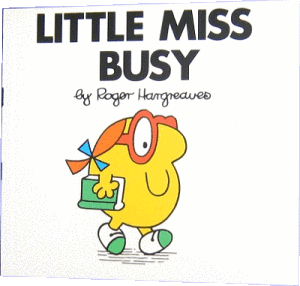
by Julia Felton | Jun 19, 2013
Time is the great equalizer. Everybody gets the same amount: 24 hours in a day, 60 minutes in an hour. We can’t save time or accumulate or rearrange it. We can’t turn it off or on. It can’t be replaced.
But these days, it seems as if the lament of not having enough time has become a national anthem. Everywhere people find themselves constantly in a rush, over-booked and over-scheduled with no time off. Life is accompanied by the ongoing stress of not enough time. And sometimes doing too much and being too busy can be a way of numbing feelings or disguising depression or anger.
Though it may not always seem so, how we fill our time and how we spend it is our choice. Answer the following questions to discover if you’re caught up in the “too-busy” cycle.
- I constantly find myself doing “urgent” things and trying to catch up.
- I allow myself to drift into obligations when I don’t know how much time or energy they’ll require.
- I find myself running from when I get up in the morning until I go to bed at night. I’m always tired and never feel like I accomplished enough.
- I seldom schedule a day off for myself and when I do, I tend to fill it with activities.
- I don’t make time for “self-care” activities: physical exercise, nurturing or “pampering” myself, cultural stimulation, spiritual well-being, learning something new, playing, or simply doing nothing.
- I seldom have time to do the things I really love.
- My work and project areas are cluttered with “I’ll look at this later” stacks and “to-do” piles.
- I often miscalculate how long certain activities will take.
- I often miss deadlines or work long hours to meet a deadline.
- I respond to interruptions such as phone calls, faxes, email, beepers and pagers, and allow them to take me off track.
- I try to keep things in my head rather than making lists. If I do make a daily “to-do” list, it’s impossible to complete in a day.
- I tend to move from one urgent thing to the next, rather than working toward specific goals and objectives.
- I find myself constantly wishing I had more time or projecting an imaginary future when I have more time, making comments such as “as soon as…” or “next year…”
- I spend time running errands and rushing because I didn’t plan well enough.
- I spend time doing things I could pay someone else to do.
- I often do things because I “should,” or continue to do things that no longer fit who I am.
- Other people complain that my schedule doesn’t allow enough time for them.
Are you too busy? If so, think about three things that you can let go of and start saying No to things. No-one will value your time unless you value your time. Recently, I had to let go of a client that was draining me of energy and being demanding of my time. Sure it was a hard decision but once I released that client a couple of my ideal clients turned up instead. Funny how that works!
If you want to stop being busy then why not apply for one of the limited number of strategy sessions I offer each month, so that I can help you grab control and create a Joined Up Business.

by Julia Felton | May 17, 2013
“The most precious asset of all is something that, if lost, can only be restored not by words, but by actions; that is the asset of trust and confidence.“ — British Prime Minister Gordon Brown on CNN
Never before has trust been a more crucial asset or a more career-critical skill for individuals or organizations than it is right now. Trust—more than Euros, Yen, or dollars—is the new currency of business. Trust is not something to be taken for granted; it is something to be built up, valued, and carefully preserved. However, all of us will undoubtedly deal with broken trust at some time—personally and professionally.
The idea that trust cannot be restored once lost is a myth. Though it may be difficult, in most cases, lost trust can be restored—and often even enhanced! Prioritizing trust—actively seeking to establish it, grow it, restore it, and wisely extend it—will bring personal and organizational dividends that far exceed any other path.
Join Stephen M. R. Covey at the first ever Trust Conference to learn what you can do to restore trust in your most critical relationships

by Julia Felton | Mar 27, 2013
How often have you invested in a personal growth training to try to improve something you felt you were not good at? Perhaps it was marketing, sales, personnel management or public speaking. For most of us, trying to improve our weak areas in operating our business or managing our department comes with the territory. Whatever the area, we feel as if we are required to do battle with what we don’t do well.
As it turns out, the majority of people around the world feel this way. In their groundbreaking book Now, Discover Your Strengths, authors Marcus Buckingham and Donald Clifton say that across all ages and cultures, people are more concerned about their weaknesses than their strengths. We believe that our weaknesses matter more in holding us back than our strengths matter in advancing us.
That’s nonsense, say the authors—widely held nonsense, but nonsense nonetheless. In their provocative theory, they suggest that the better strategy is to play to your strengths, building upon your core talents, and work around your weaknesses. You can work to add skills and knowledge to increase your performance in any area, but unless you are building upon one of your innate talents, your efforts won’t produce exceptional results—some results, yes, but not dramatic improvement.
“Unless you have the necessary talent, your improvements will be modest,” write Buckingham and Clifton. “You will be diverting most of your energy toward damage control and very little toward real development.”
The expression “damage control” is their term for trying to minimize your weaknesses—the areas where your lack of talent actually get in the way of your performance.
“Managing Around” a Weakness
Instead of trying to overcome your weaknesses by brute force—and at the expense of putting the same energy into growing your strengths—they offer five strategies for what they call “managing around” a weakness:
- Get a little better at it. In some cases, your weakness is only moderately impeding your peak performance in other areas. If so, then maybe damage control is the right solution.
- Develop a support system. This is the proverbial string tied around the finger to remind you of something. Whether it is time management systems for those with a talent for adaptability but not discipline, or a scheduled walk in the park for disciplined folks who neglect self-care, you can often blunt the effects of your weaknesses through such structured inputs.
- Study your prospects. If your skills tend toward the analytical and away from such talents as wooing clients or dealing directly with confrontation, then you probably ought not be spending a lot of time in sales. But when you do have to sell something—such as one of your ideas—approach the problem analytically. Rather than agonize over your lack of salesmanship, study your prospects, dig into what makes them tick and what ideas they’ve accepted in the past, and let your enthusiasm for your ideas do the talking.
- Find a partner. This may be the best approach for small business people and “solo” practitioners. Go into partnership discussions with a clear-eyed understanding of the strengths you bring, and the strengths you need from your partner. Don’t be shy about your strengths—the whole point of this is to create a world in which you get to do what you are really good at. And be open-minded about what a partnership looks like. For some solo practitioners, an administrative assistant or a marketing consultant could be all the partnering you need.
- Just (Don’t) Do It. The last option, say Buckingham and Clifton, is just don’t do the things you are weak at. In a corporate setting you might get away with this, particularly if you are a high-performer in the areas of your strengths. If you’re a small business owner and your organizational chart tends to have “me” written in most every box, not doing something may not seem like much of a choice. But keep it as a goal and continue to work toward the day when you can contribute to your business exclusively from the place of your highest strengths.
Taking your Talent Dynamics profile is a great way to help you figure out where your strengths lie and people that work with their innate talents are generally more productive, efficient, happy and less stressed, What will you do today to help you focus on developing your strengths?
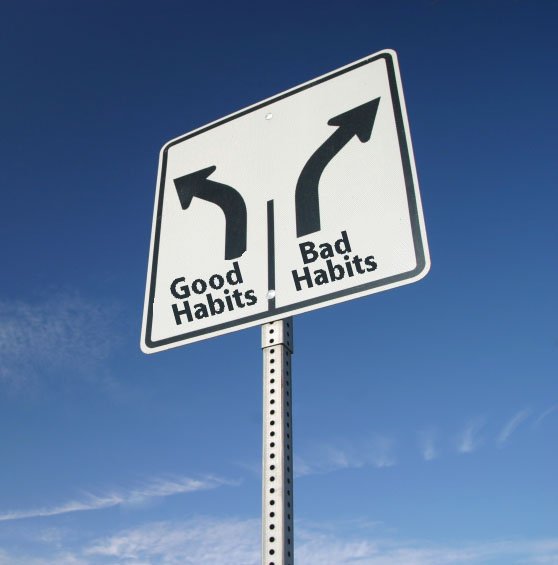
by Julia Felton | Mar 20, 2013
Habits—good or bad—are difficult to break. Aristotle said it best: “We are what we repeatedly do. Excellence is not an act…it’s a habit.”
An excerpt from Habits Die Hard by Mac Anderson & John J. Murphy
I am your constant companion.
I am your greatest asset or heaviest burden.
I will push you up to success or down to disappointment.
I am at your command.
Half the things you do might just as well be turned over to me.
For I can do them quickly, correctly, and profitably.
I am easily managed; just be firm with me.
Those who are great, I have made great.
Those who are failures, I have made failures.
I am not a machine, though I work with the precision of a
machine and the intelligence of a person.
You can run me for profit, or you can run me for ruin.
Show me how you want it done. Educate me. Train me.
Lead me. Reward me.
And I will then…do it automatically.
I am your servant.
Who am I?
I am a habit.
Think about it. There is nothing that will shape your destiny more than your habits. Why is that true? Because you are invariably the sum of the choices you will make in your life. And those choices are greatly influenced by your habits…good and bad.
You may have heard the quote: “When the student is ready, the teacher will appear.” And so it is…if you’re ready to change some habits that might be holding you back in your relationships, your career or your life, then please contact me

by Julia Felton | Mar 17, 2013
There are many ways to avoid success in life, but the most sure-fire just might be procrastination. Procrastinators sabotage themselves. They put obstacles in their own path. They actually choose paths that hurt their performance. So would why people do this? It’s a question that I have been pondering on a lot lately as I actively observe myself sabotaging parts of my business.
Two of the world’s leading experts on procrastination: Joseph Ferrari, Ph.D., associate professor of psychology at De Paul University in Chicago, and Timothy Pychyl, Ph.D., associate professor of psychology at Carleton University in Ottawa share their thoughts.
- Twenty percent of people identify themselves as chronic procrastinators. For them procrastination is a lifestyle, albeit a maladaptive one. And it cuts across all domains of their life. They don’t pay bills on time. They miss opportunities for buying tickets to concerts. They don’t cash gift certificates or checks. They file income tax returns late. They leave their Christmas shopping until Christmas eve.
- It’s not trivial, although as a culture we don’t take it seriously as a problem. It represents a profound problem of self-regulation. And there may be more of it in the U.S. than in other countries because we are so nice; we don’t call people on their excuses (“my grandmother died last week”) even when we don’t believe them.
- Procrastination is not a problem of time management or of planning. Procrastinators are not different in their ability to estimate time, although they are more optimistic than others. “Telling someone who procrastinates to buy a weekly planner is like telling someone with chronic depression to just cheer up,” insists Dr. Ferrari.
- Procrastinators are made not born. Procrastination is learned in the family milieu, but not directly. It is one response to an authoritarian parenting style. Having a harsh, controlling father keeps children from developing the ability to regulate themselves, from internalizing their own intentions and then learning to act on them. Procrastination can even be a form of rebellion, one of the few forms available under such circumstances. What’s more, under those household conditions, procrastinators turn more to friends than to parents for support, and their friends may reinforce procrastination because they tend to be tolerant of their excuses.
- Procrastination predicts higher levels of consumption of alcohol among those people who drink. Procrastinators drink more than they intend to—a manifestation of generalized problems in self-regulation. That is over and above the effect of avoidant coping styles that underlie procrastination and lead to disengagement via substance abuse.
- Procrastinators tell lies to themselves. Such as, “I’ll feel more like doing this tomorrow.” Or “I work best under pressure.” But in fact they do not get the urge the next day or work best under pressure. In addition, they protect their sense of self by saying “this isn’t important.” Another big lie procrastinators indulge is that time pressure makes them more creative. Unfortunately they do not turn out to be more creative; they only feel that way. They squander their resources.
- Procrastinators actively look for distractions, particularly ones that don’t take a lot of commitment on their part. Checking e-mail is almost perfect for this purpose. They distract themselves as a way of regulating their emotions such as fear of failure.
- There’s more than one flavor of procrastination. People procrastinate for different reasons. Dr. Ferrari identifies three basic types of procrastinators:
- arousal types, or thrill-seekers, who wait to the last minute for the euphoric rush.
- avoiders, who may be avoiding fear of failure or even fear of success, but in either case are very concerned with what others think of them; they would rather have others think they lack effort than ability.
- decisional procrastinators, who cannot make a decision. Not making a decision absolves procrastinators of responsibility for the outcome of events.
- There are big costs to procrastination. Health is one. Just over the course of a single academic term, procrastinating college students had such evidence of compromised immune systems as more colds and flu, more gastrointestinal problems. And they had insomnia. In addition, procrastination has a high cost to others as well as oneself; it shifts the burden of responsibilities onto others, who become resentful. Procrastination destroys teamwork in the workplace and private relationships.
- Procrastinators can change their behaviour—but doing so consumes a lot of psychic energy. And it doesn’t necessarily mean one feels transformed internally.
Can you determine from this article why you procrastinate? For me self-regulation and planning are the keys, as well as having the perseverance to continue against the odds. One thing I do know is that I don’t procrastinate with tasks I just love doing. It’s just the things that I hate, so why do them? Increasingly to avoid procrastination I am seeking ways to focus on the things I excel at in business and outsource and delegate those tasks that take me out of flow and are a challenge.
So how do you find out the tasks that you are best suited to do? Take a Talent Dynamics test and find out. It’s helped me so much.
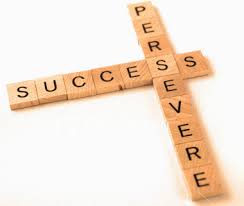
by Julia Felton | Mar 6, 2013
I recently read this great blog my John Maxwell and decided to share it with you as it talks about a subject really close to my heart right now – Perseverance. Perseverance is a trait that all great leaders have and it is what keeps them going when times get tough. Yet all too often I personally find myself slacking off at these times. I’ve been doing a lot of work to try and figure out why and what is going on. Sometimes the results are tough to take, but listen to them I must if I am to continue to grow my business.
“Perseverance begins with the right attitude – an attitude of tenacity. But the desire to persevere alone isn’t enough to keep most people going when they are tired or discouraged. Perseverance is a trait that can be cultivated. And the initial step to developing it is to eliminate its five greatest enemies.”
Perseverance requires determination. If you take the time and effort to cultivate tenacity, you can achieve the impossible. However, there are endless temptations, false beliefs, and distractions that can lead to abandoning what once seemed of the utmost importance.
According to Beyond Talent, we must eliminate the five greatest enemies of perseverance. Eliminating the following five things will bring greater chance of success:
1. A lifestyle of giving up
“Talent without perseverance never comes to full fruition. Opportunities without persistence will be lost. There is a direct correlation between perseverance and potential. If you have a habit of giving up, you need to overcome it to be successful.”
There is no doubt that giving up is the easy thing to do in many situations. When we’re presented with opportunities, we are programmed to want to take the easy route. However, taking the difficult path will allow us to see our talent come to full fruition.
2. A wrong belief that life should be easy
“Having the right expectations going into anything is half the battle.”
It’s common to expect that life should be handed to us on a silver platter. However, expectations don’t always match reality. When faced with tough situations, we have two choices. We can either give up, or we can dig in and get down in the trenches. Perseverance is choosing the trenches.
3. A wrong belief that success is a destination
“If you think you have arrived, then you’re in trouble. As soon as you think you no longer need to work to make progress, you’ll begin to lose ground.”
Success is not a destination. Success is a path we choose to walk down each day. When we stop seizing opportunities, we hit plateaus. As leaders, we constantly have the chance to learn, grow and move forward. With a bit of perseverance, we can move beyond our “success” and through open doors.
4. A lack of resiliency
“We must not become dry, brittle, and inflexible. And we must endeavour to bounce back, no matter how we may feel.”
We can’t let discouraging moments break us. Instead, we must be resilient. By persevering through tough times and taking struggles on, we have the ability to go beyond our talent.
5. A lack of vision
“People who display perseverance keep a larger vision in mind as they toil away at their craft or profession. They see in their mind’s eye what they want to create or to do, and they keep working toward it as they labor.”
What is your vision? Let that be your guiding light as you persevere through the less than desirable moments in life. Know that through perseverance, your talent will be lifted, ultimately reaping great benefits in the end.
Overall, take the time to think through which of these enemies is hindering your ability to persevere as a leader. Once you identify these strongholds, you will be able to rise above any situation and accomplish even the loftiest goals.
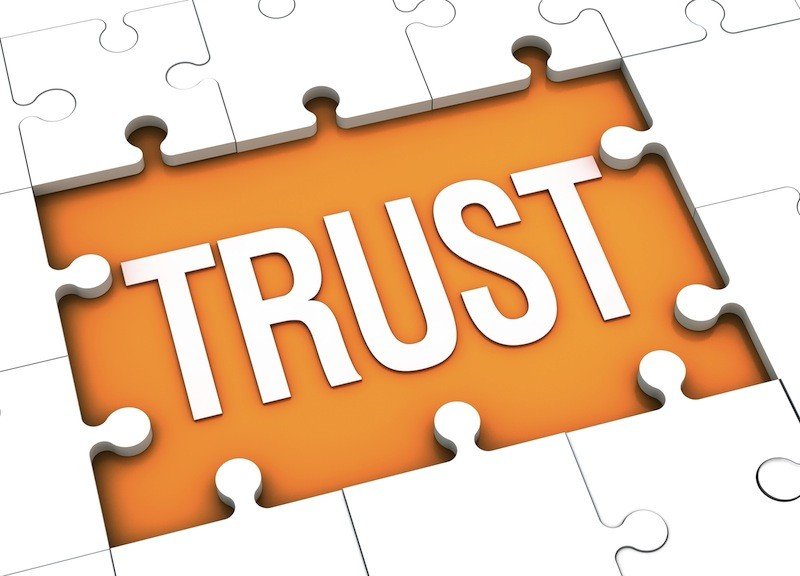
by Julia Felton | Feb 27, 2013
Trust is the unwritten social contract that underpins everything in our society. We all know how it feels when trust is broken or lost. More importantly we all understand what the effects of a loss of trust can be.
Yet trust allows us to great things. Through trust we can work together effectively. We can rely on our friends and family. We can speed up communication and action.
All because of trust.
Trust in Business
Trust relationships also cement every business activity. Trust in business exists through our external interactions with other organisations while internally it draws our business together. At the most basic level trust is needed for every employee contract or commercial transaction.
But trust in business is a much more vital concept in the 21st Century. As the certainties of the past are being undermined, economics and performance are being affected.
Is the concept of trust in your business a central part of your strategy?
The Meaning of Trust
Trust, in brief, is the confident expectation of something. Whether we are working at the highest level of a business or as an employee we all need to be confident in something in the future. We expect that our business will continue or our job will be safe.
Yet trust is sidelined as too ‘fuzzy’ to be measured or understood. It certainly can’t be applied. This simply is not true. We measure the effects of trust everyday.
What areas are affected by trust in business?
1. Turnover and Profit
2. Sales Performance
3. Referred Business
4. Employee Satisfaction and Engagement
5. Productivity
6. Project and Product Delivery
7. Customer Satisfaction and Loyalty
8. Brand Awareness and Marketing
The Measure of Trust
We can see the effect of trust but what would be the impact if we could go straight to the source and measure it directly?
It is safe to say that what and who we trust, we value. In business, what we value can be broken down into five different aspects.
What areas are affected by trust in business?
Innovation
Sometimes you need creative solutions and plans, ‘out of the box thinking’. Who do you value for this aspect? Chances are you trust them as well.
Communication
Every business needs good communication, internally and externally. The ability to listen and share information is a valuable skill and ability. Who do you trust most in this aspect?
Service
All businesses need to take care of the people that matter to them, whether that is team members or customers. Who do you rely on most to give excellent service?
Measurement
If we don’t know how we’ve done, how do we get better? Who do you lean on most for your measurement and reporting?
Spirit
This is the ability to stay resilient and positive. This is often the quality of leadership. Who do you trust to lead?
If a business or a team member loses their value in one of these aspects, it is easy to undermine what else they provide us. By assessing all five areas we can quickly become aware of where we have hidden, unused talent that can be unlocked.
If you want to learn more about TRUST and it’s importance in both the workplace and life you will not want to miss The Trust Conference. Book now to benefit from the early bird discounts
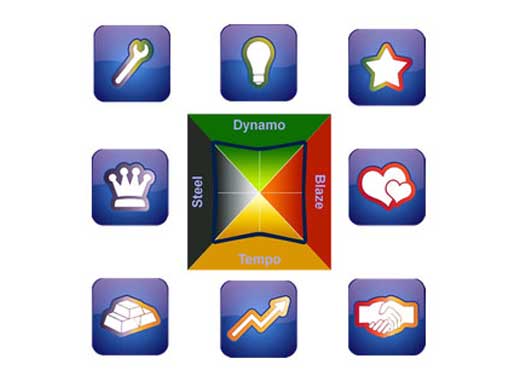
by Julia Felton | Feb 4, 2013
There are many types of leaders in any organisation and often the best leader is the one best suited for the job at hand. Now you know all about the eight different Talent Dynamics profiles you can then chose the leader suited for that job.
 Creators
Creators
Don’t expect a Creator to be the best people-person or a data-driven analyst. Creators lead best by setting the vision, a high standard to reach for and being task focused to reach their goals. To be in flow and avoid inevitable friction, a Creator needs a strong communicator to lead the team and a strong analyst to manage the numbers, or both the
people and the profit will suffer.
 Stars
Stars
Don’t expect a Star to wait for their team, or delight in the details (unless it is details on presentation and people). Stars strive for high standards and will often switch things at last moment to suit the occasion. Their leadership is by inspiration and leading from the front, so they need a strong Deal Maker to secure the connections and a strong number cruncher to count the dollars.
 Supporters
Supporters
Despite being one step away from the Star profile, the two are as different as thunder and lightning. Supporter profiles engender plenty of loyalty wherever they go, one of the Star profile’s greatest challenges. This is because while Stars generate hands-off admiration, Supporters attract hands-on motivation. Supporters are both intuitive and sensory which means that they can often act as the antenna for a more removed profile, leading by being the implementer from vision to action, through people.
 Deal Makers
Deal Makers
Deal Makers are ‘people people’ but they are more private than a Star and prefer to work one-to-one. Don’t expect Deal Makers to stick to a plan and expect them to come back from a meeting with a very different outcome than expected but a much better one. Deal Makers lead best when they are able to be in constant conversation with their ear to the ground, not isolated from the crowd or stuck in the back office.
 Traders
Traders
Traders struggle when given a blank sheet to fill but will quickly find the patterns in a puzzle. They find their flow when they grow a connection with their market and with their team. When they are taken out of this connection, it takes them time to tune back in and find their rhythm again. Traders lead far better through daily activity than long-term milestones and where they have ongoing input to inform their decision-making. All great Trader leaders lead from the middle of the action, which is the opposite of Creators, who do their best work when above the noise of the markets.
 Accumulators
Accumulators
Their analytical skills and sense of timing make Accumulators excellent project managers who will find the way to deliver what is needed on time. This ability to be extremely reliable has led many Accumulators up the ranks in areas that are not their passion. Many end up being faced with office politics, which they have little interest in and are ill equipped to handle. Accumulators lead best when they have the power to choose their team, as they will ensure that they only choose those reliable enough to get the job done.
 Lords
Lords
Lords are great at finding inefficiencies because they analyse the detail and stay in fanatical control. While this works for hard assets, it doesn’t work so well with people. For this reason, Lords are best at leading through the numbers instead of through conversation and collaboration. Lords almost always value process and policy over people, so take care in their position within a team and set them up for success using their strengths.
 Mechanics
Mechanics
Mechanics like to take things apart and put them together again. They are up to the challenge of changing the wheels on a moving car and as a result they are continually challenging the status quo on the way things are done. This can be very stimulating for some and very frustrating for others. Mechanics lead best by staying out of the fray and seeking ways to perfect a process or system and then have a team implement with thorough training.
Discover your leadership style by taking your Talent Dynamics Profile Test























